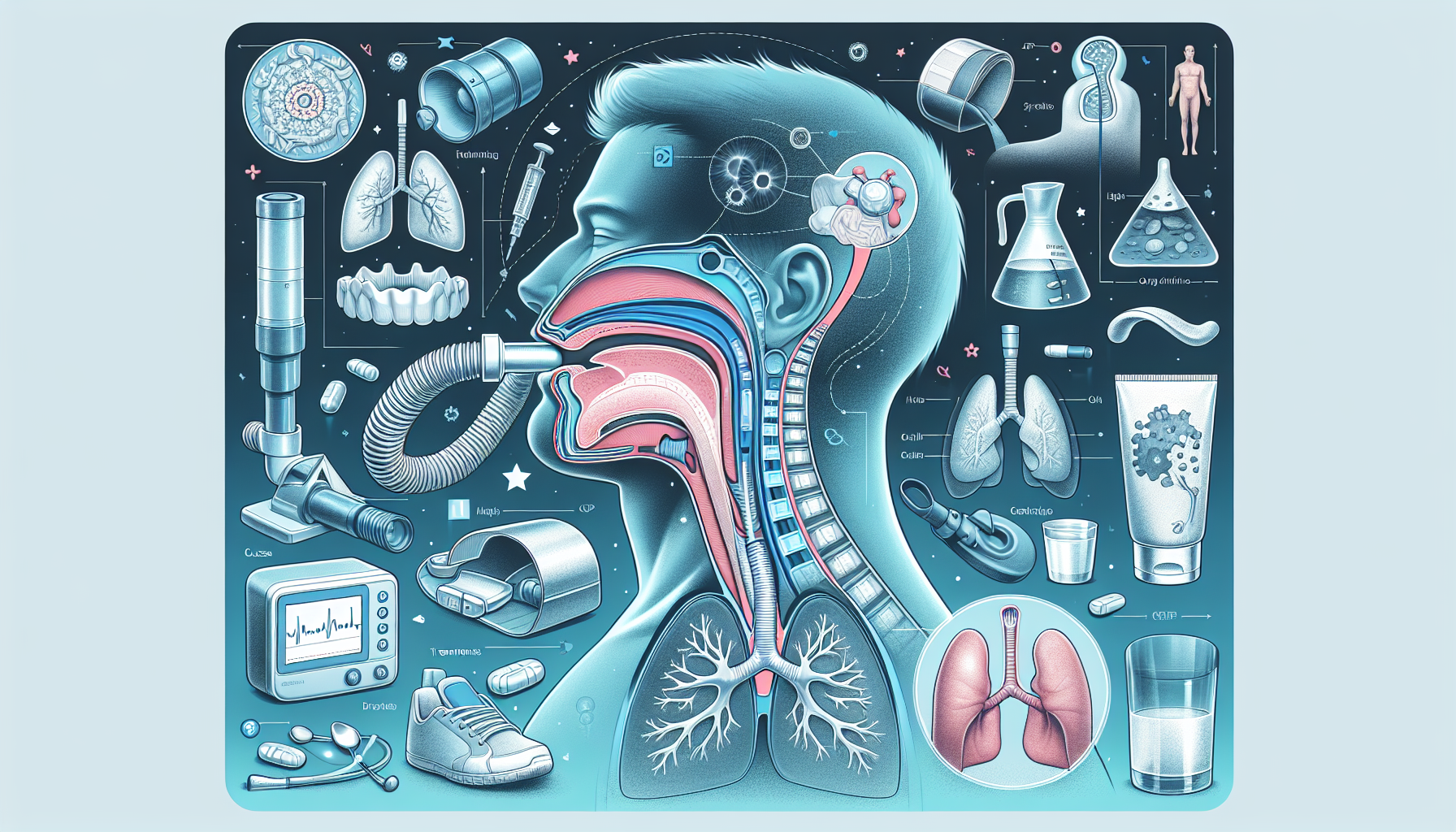If you’ve ever laid awake at night, wondering if there is a way to cure your sleep apnea, then buckle up, because this article is about to offer you some hope. Sleep apnea is a common sleep disorder that affects millions of people worldwide, causing interrupted breathing during sleep and leading to daytime fatigue and other health problems. But fret not, as recent research and advancements in treatment options suggest that there may be a light at the end of the tunnel for those suffering from sleep apnea. So, let’s explore the possibilities and discover if sleep apnea can indeed be cured.
Overview
In this article, we will explore the topic of sleep apnea and delve into its definition, types, causes, risk factors, and symptoms. Sleep apnea is a common sleep disorder that affects millions of people worldwide. By understanding the various aspects of this condition, you can be better equipped to recognize its signs and seek appropriate treatment.
Definition of Sleep Apnea
Sleep apnea is a sleep disorder characterized by interruptions in breathing during sleep. These interruptions, known as apneas, can last for a few seconds to a minute and may occur multiple times throughout the night. The most common form of sleep apnea is obstructive sleep apnea (OSA), which occurs when the muscles in the throat fail to keep the airway open, leading to breathing difficulties.

Types of Sleep Apnea
There are three main types of sleep apnea: obstructive sleep apnea (OSA), central sleep apnea (CSA), and complex sleep apnea syndrome (CompSAS). Each type has distinct characteristics and underlying causes.
Obstructive Sleep Apnea (OSA)
Obstructive sleep apnea is the most prevalent type, accounting for the majority of sleep apnea cases. It occurs when the soft tissues at the back of the throat, including the tongue, collapse during sleep, blocking the airway. This obstruction leads to pauses in breathing and often results in loud snoring or gasping for air.
Central Sleep Apnea (CSA)
Central sleep apnea is less common and differs from OSA in that it is not caused by a physical obstruction. Instead, CSA occurs when the brain fails to send proper signals to the muscles responsible for breathing. This lack of coordination between the brain and respiratory muscles leads to breathing disruptions during sleep.
Complex Sleep Apnea Syndrome (CompSAS)
Complex sleep apnea syndrome is a combination of both obstructive and central sleep apnea. It typically starts as OSA but transitions into CSA following the use of continuous positive airway pressure (CPAP) therapy or other breathing devices. CompSAS is less understood than the other types of sleep apnea, and researchers are still exploring its causes and treatments.
Causes of Sleep Apnea
The causes of sleep apnea can vary depending on the type. In obstructive sleep apnea, the primary cause is often the collapse of the soft tissues in the throat during sleep. This collapse can be influenced by factors such as obesity, excess weight, narrowed airway, and certain anatomical features like a large tongue or tonsils.
In central sleep apnea, the underlying cause is usually a malfunction in the brain’s respiratory control centers. This malfunction can be the result of certain medical conditions, such as heart failure or stroke, or the use of certain medications, such as opioids.
The exact causes of complex sleep apnea syndrome are still being studied, but it is thought to involve a combination of factors from both obstructive and central sleep apnea.
Risk Factors for Sleep Apnea
While sleep apnea can affect anyone, certain factors can increase the risk of developing this sleep disorder. These risk factors include:
-
Obesity or excess weight: Being overweight can contribute to the narrowing of the airway and increase the likelihood of breathing obstructions during sleep.
-
Age: Sleep apnea becomes more common as you get older, with middle-aged and older adults being at a higher risk.
-
Gender: Men are more likely to have sleep apnea than women, although the risk for women increases after menopause.
-
Family history: Having a family history of sleep apnea or other sleep disorders can increase the likelihood of developing the condition.
-
Smoking: Smoking can cause inflammation and fluid retention in the airway, making it more prone to obstruction.
-
Alcohol and sedative use: These substances relax the muscles in the throat, increasing the likelihood of airway collapse.
Symptoms of Sleep Apnea
The symptoms of sleep apnea can vary from person to person, and some individuals may not even be aware of their condition. However, common signs and symptoms include:
-
Loud and chronic snoring
-
Episodes of gasping or choking during sleep
-
Excessive daytime sleepiness or fatigue
-
Morning headaches
-
Difficulty concentrating or reduced alertness
-
Mood changes or irritability
-
Awakening with a dry mouth or sore throat
-
Restless sleep or frequent awakenings during the night
If you or someone you know experiences these symptoms, it is important to consult a healthcare professional for further evaluation and potential diagnosis of sleep apnea.
Conclusion
Sleep apnea is a serious sleep disorder that can significantly impact one’s quality of life and overall health. By understanding its definition, types, causes, risk factors, and symptoms, you are now equipped with valuable knowledge to identify and seek appropriate treatment for sleep apnea. If you suspect that you may have this condition, do not hesitate to consult a healthcare professional who can guide you towards effective management strategies and improve your well-being. Remember, a good night’s sleep is essential for optimal health and vitality.
